Master of Science in Environmental Science
2025-09-25 9:33Master of Science in Environmental Science
Master of Science
in Environmental Science
Course Duration : 2 Years
MSc in Environmental Science – Course Details & Duration
Overview of MSc Environmental Science
MSc in Environmental Science at Alpine College, Dehradun is a 2-year postgraduate program that equips students with comprehensive knowledge about environmental systems, ecological balance, natural resource management, and sustainable development. The program is ideal for students passionate about solving real-world environmental problems through science, research, and policy.
Alpine College offers a balanced curriculum with strong emphasis on fieldwork, lab analysis, GIS & remote sensing, pollution control technologies, and climate change adaptation — preparing students for impactful careers in government, NGOs, industry, and academia.
About this Course
Extend your impact beyond medicine into the realm of environmental responsibility. Our Master's in Environmental Science program empowers you to understand and mitigate the ecological footprint of pharmaceutical practices. Explore sustainable drug development and contribute to a healthier planet while advancing your pharmaceutical expertise.
Course Highlights
M.Sc. Environmental Science Course Details
MSc Environmental Science Syllabus at Alpine College
The syllabus at Alpine College aligns with UGC and environmental research standards, blending scientific knowledge with applied environmental practices.
Semester-wise Breakdown:
Semester 1:
- Fundamentals of Environmental Science
- Environmental Chemistry
- Ecology and Biodiversity
- Practical: Laboratory & Field Techniques
Semester 2:
- Environmental Pollution and Control
- Environmental Microbiology
- Environmental Impact Assessment (EIA)
- GIS, Remote Sensing & Data Analysis
Semester 3:
- Climate Change and Disaster Management
- Renewable Energy and Sustainable Technologies
- Environmental Legislation & Policy
- Research Methodology & Mini Project
Semester 4:
- Waste Management and Treatment Technologies
- Dissertation / Research Thesis
- Seminar & Viva Voce
🌍 Alpine College provides hands-on training through lab work, field studies, environmental audits, and industry visits, giving students strong applied exposure.
Eligibility Criteria for MSc Environmental Science at Alpine College
Candidates must fulfill the following criteria to apply:
- Academic Qualification: B.Sc. in Environmental Science, Botany, Zoology, Chemistry, Microbiology, Biotechnology, or any Life Science discipline
- Minimum Marks Required: 50% aggregate (Relaxation for SC/ST candidates as per govt norms)
- Entrance Exam: Not mandatory – Direct admission available
Direct Admission at Alpine College, Dehradun
Alpine College offers direct admission into the MSc Environmental Science program for eligible candidates without an entrance exam.
Admission Process:
- Apply Online/Offline through the official Alpine College website or by visiting the campus.
- Document Submission: UG degree, mark sheets, ID proof, passport-size photos.
- Counseling/Interaction (if applicable)
- Seat Confirmation via token fee payment
✅ No entrance exam required. Seats are allotted based on merit and application timing.
Career Scope After MSc Environmental Science
Graduates of the MSc Environmental Science program at Alpine College can pursue meaningful careers in environmental consulting, pollution control boards, wildlife conservation, sustainable development, and research.
Career Opportunities:
- Environmental Consultant
- EIA Specialist
- Pollution Control Officer
- Climate Change Analyst
- Waste Management Expert
- Research Scientist
- Academic/Teaching Positions
Top Employers & Opportunities:
- Ministry of Environment, Forest and Climate Change (MoEFCC)
- Central & State Pollution Control Boards
- NGOs and CSR Divisions
- UNEP, WWF, IUCN
- Environmental Labs and Consulting Firms
- Higher Education / Research Institutes
Alpine’s placement and career cell connects students with organizations for internships, research projects, and job placements.
Fees for MSc Environmental Science at Alpine College
Alpine College offers a competitive and affordable fee structure for the MSc in Environmental Science program, along with flexible payment options and scholarships.
💰 Want personalized fee details, scholarship options, or EMI plans for MSc Environmental Science?
👉 Click here to receive a callback or detailed fee breakdown! (CTA / lead capture form)
Some of the Popular Career Paths Include
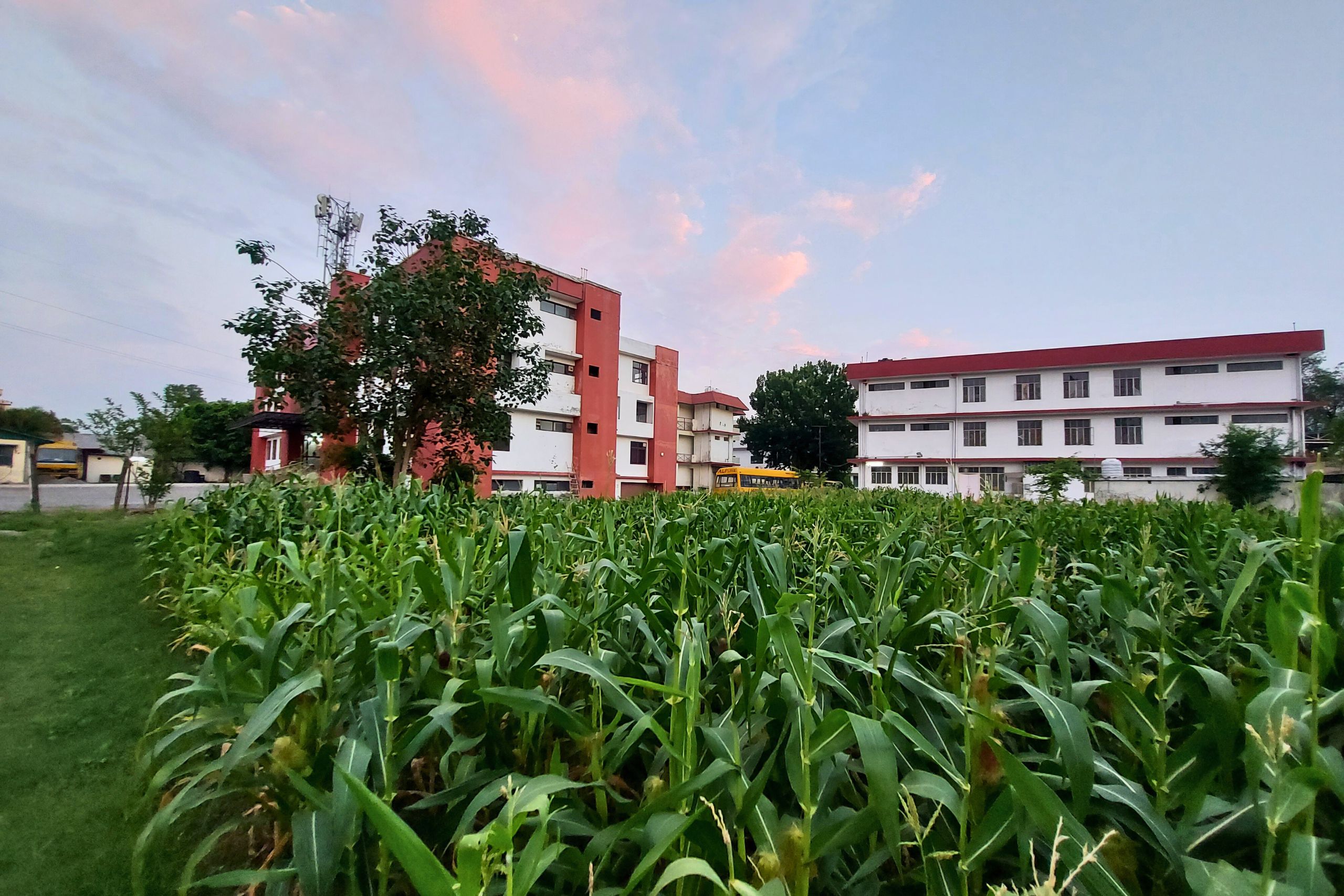
Life of a
Student in Environmental Science
Extend your impact beyond medicine into environmental responsibility. In this Master's program, you'll explore sustainable drug development and contribute to a healthier planet while advancing your pharmaceutical expertise. Your journey is a balance of ecological awareness and pharmaceutical innovation.
Download Brochure
Why Choose Alpine College, Dehradun?
Recognized by UGC & affiliated to HNB Garhwal Central University
Modern labs with environmental testing and GIS software
Faculty with industry, research, and field experience
Field-based learning with real-world environmental case studies
Eco-friendly campus in the Himalayan foothills of Dehradun
Career guidance, internships, and placement assistance
Our Proud Alumni

Animesh Banerjee

Jameson

Mritunjay Chaudhary

Lakshmi S. Nath

Pasan Pavan Kalyan

Rahul Jaiswal

Shivam Kumar

Yadhika Ghatani

Praveen Kumar Thakur

Shaswat Deep

Ritik Kumar
Photo Library
Crafting careers, fueling dreams. Where learning meets adventure, everyday.





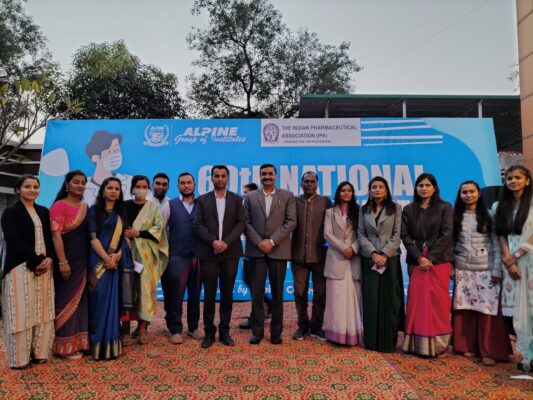
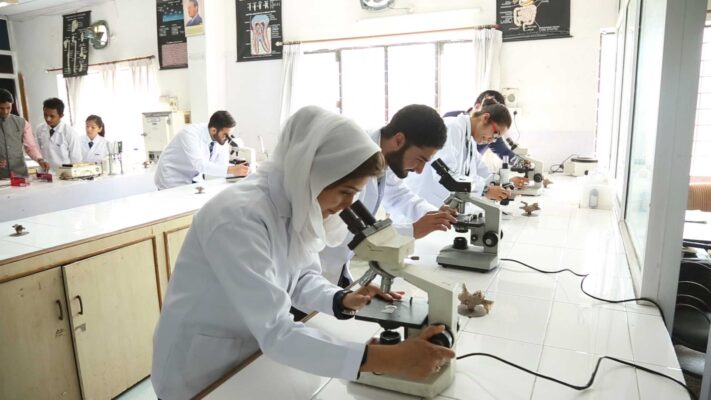

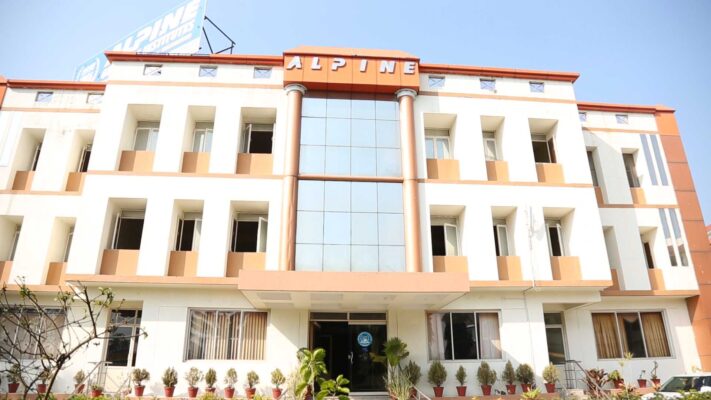



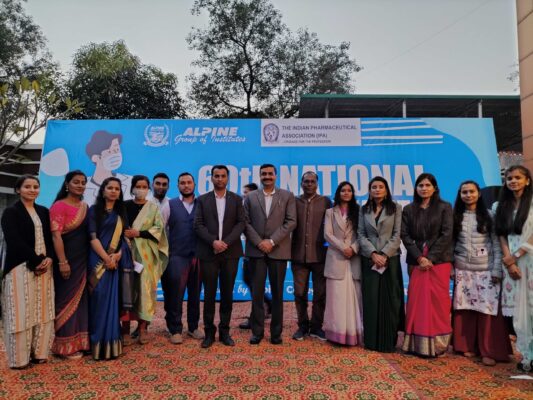

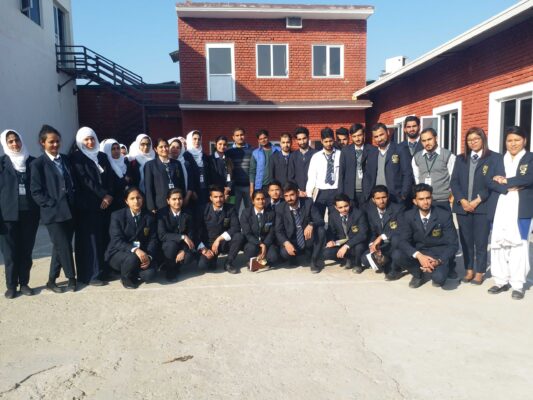
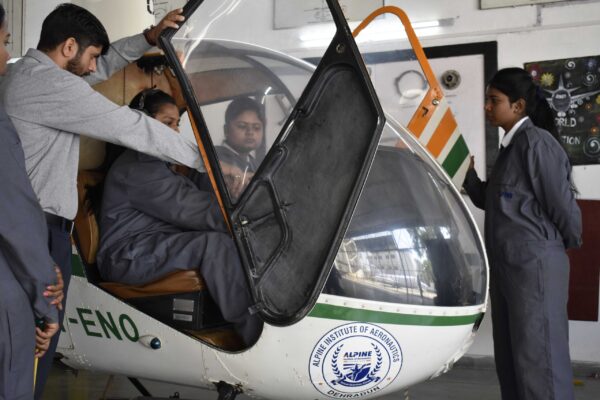

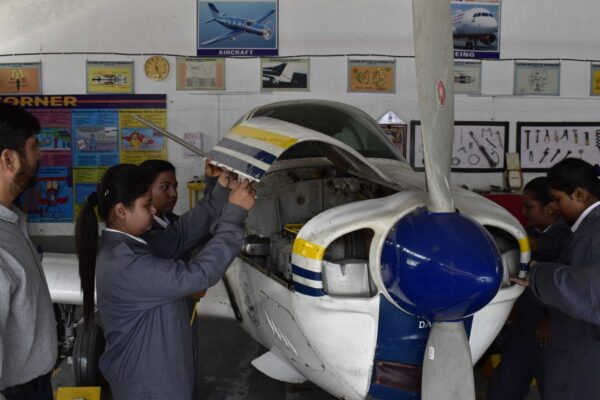

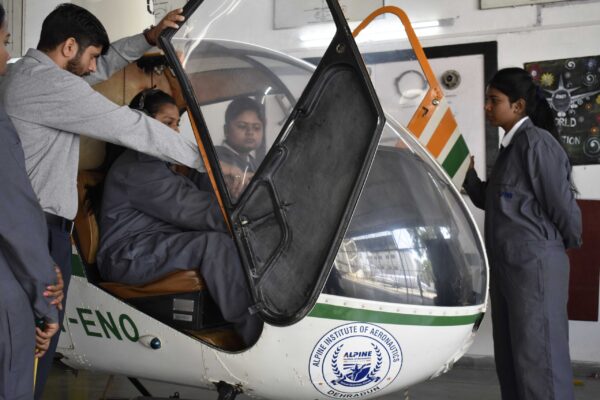

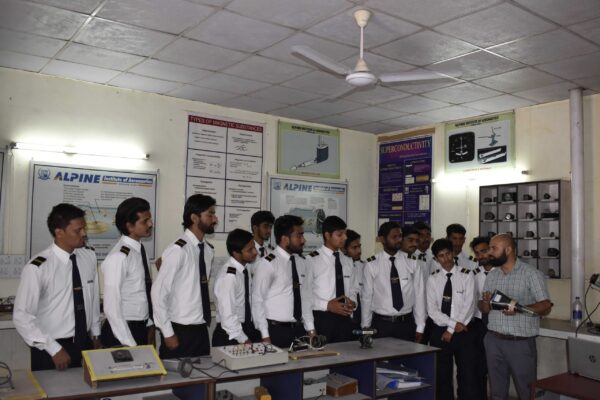
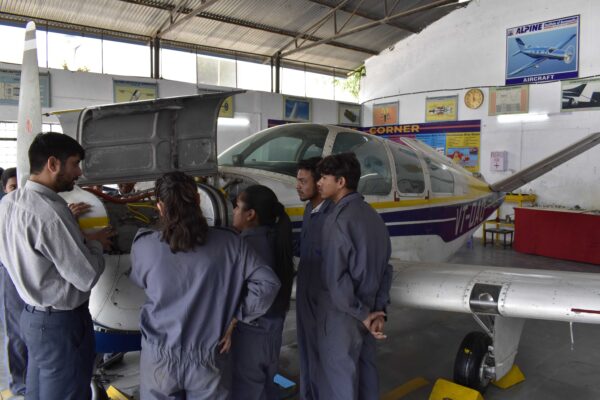


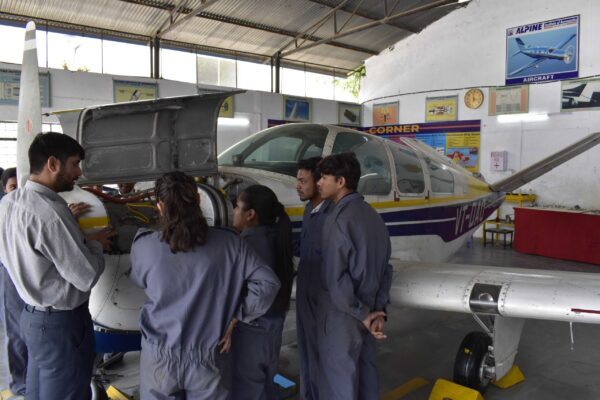
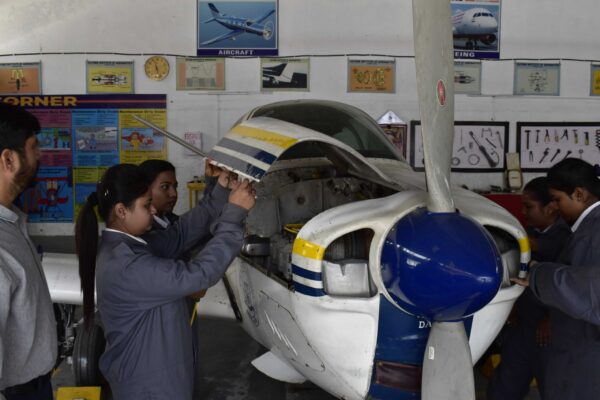



Frequently Asked Questions
A Master’s degree in Environmental Science opens up various career prospects across different sectors. Graduates may pursue roles such as Environmental Consultant, Sustainability Specialist, Environmental Policy Analyst, Conservation Scientist, Environmental Educator, Research Scientist, Environmental Health Specialist, Urban Planner, Renewable Energy Analyst, and Wildlife Biologist. These professionals work in government agencies, non-profit organizations, consulting firms, research institutions, educational institutions, and private industries to address environmental challenges, promote sustainability, and protect natural resources.
Pursuing a Master’s in Environmental Science offers numerous benefits. Graduates gain advanced knowledge and skills in areas such as environmental policy, sustainability, conservation, and resource management. This expertise opens doors to diverse career opportunities in government agencies, non-profit organizations, consulting firms, research institutions, and private industries. Additionally, students develop critical thinking, problem-solving, and research abilities through hands-on fieldwork and laboratory experiences. They also contribute to addressing pressing environmental issues, promoting sustainability, and safeguarding natural resources for future generations. Overall, a Master’s in Environmental Science equips individuals to make meaningful contributions to environmental conservation and sustainable development while advancing their professional careers.
The main requirements for being a student in a Master’s program in Environmental Science in Dehradun, Uttarakhand India typically include:
Educational Qualifications: A Bachelor’s degree in science and related field from a recognized university, with a minimum specified CGPA or percentage as determined by the institution.
Entrance Examination: Depending on the institution, candidates may need to qualify in a national or university-level entrance examination specific to the Environmental Science program.
Admission Application: Submission of a completed application form along with required documents such as transcripts, mark sheets, and proof of identity.
A Master’s program in Environmental Science typically covers a broad range of interdisciplinary topics related to the study of the environment, sustainability, and natural resource management. Some of the main areas that are commonly covered in a Master’s in Environmental Science program include–Environmental Policy and Regulation, Ecology and Ecosystem Dynamics,
Environmental Chemistry and Pollution Control, Climate Change and Global Environmental Issues, Sustainability and Resource Management, Environmental Impact Assessment (EIA),Natural Resource Management, Environmental Monitoring and Data Analysis, Environmental Health and Risk Assessment, Research Methods and Applied Fieldwork etc.




